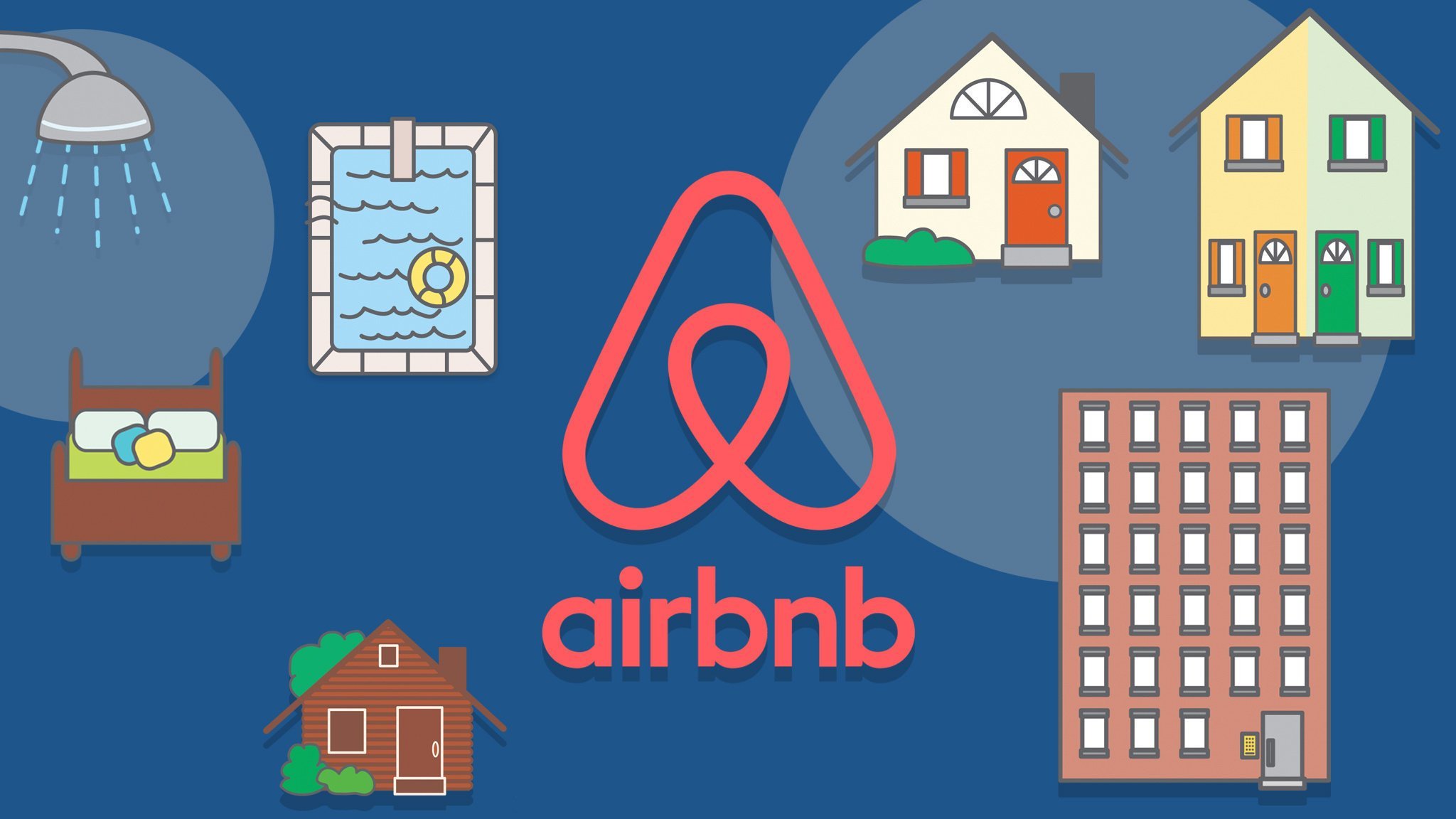Ever wondered what Airbnb stands for? The world of travel and hospitality has changed dramatically since Airbnb burst onto the scene. In this article, we're diving deep into the Airbnb acronym, uncovering its meaning, history, and everything you need to know about this global sensation. If you're planning your next stay or curious about the platform, you're in the right place!
Airbnb has become a household name, but not everyone knows the story behind the acronym. It's not just about booking a place to stay; it's about connecting people, cultures, and experiences. Whether you're a traveler or a host, understanding the origins of the name can add a whole new layer of appreciation for the platform.
From humble beginnings to a multi-billion-dollar empire, Airbnb has redefined how we think about travel. But what does the acronym really mean? Stick around, because we're about to break it down in a way that's easy to digest, packed with insights, and sprinkled with a bit of humor. Let's get started!
What Does Airbnb Stand For?
Let's cut to the chase. The Airbnb acronym stands for "AirBed and Breakfast." Sounds simple, right? But there's more to the story than meets the eye. Back in 2007, the founders Brian Chesky, Joe Gebbia, and Nathan Blecharczyk were struggling to pay rent in San Francisco. A lightbulb moment hit when they realized there was a design conference in town, and hotels were fully booked. They decided to offer air mattresses in their living room, complete with a breakfast service. And just like that, Airbnb was born!
Now, the name might seem a bit outdated, given that the platform has evolved far beyond air mattresses. But it's a nod to the origins of the company, a reminder of where it all began. The "Air" part represents simplicity and accessibility, while "Bed and Breakfast" reflects the idea of homely comfort and hospitality.
Why Did They Choose the Name Airbnb?
Choosing a name for a business is no small feat. For the founders, the name Airbnb resonated because it captured the essence of what they wanted to offer: a unique, personal, and affordable way to travel. It wasn't just about providing a bed; it was about creating an experience. The name also had a certain ring to it, easy to remember and pronounce in multiple languages.
Back in the early days, the founders faced some skepticism. "Air" mattresses? Really? But they stuck with it, and the rest is history. The name became synonymous with a new way of traveling, one that prioritized authenticity and connection over luxury and extravagance.
History of Airbnb and Its Evolution
When Airbnb first launched, it was a far cry from the polished platform we know today. The founders started with a website called "Airbedandbreakfast.com" and listed their own living room as the first listing. Fast forward to 2023, and Airbnb has listings in over 220 countries and regions, with millions of hosts offering unique stays.
But the journey wasn't always smooth. The founders faced challenges, from legal battles to cultural resistance. In some cities, short-term rentals were seen as a threat to traditional hotels and property markets. Yet, through innovation and persistence, Airbnb managed to carve out a space for itself in the travel industry.
How Airbnb Revolutionized Travel
Before Airbnb, traveling meant booking a hotel or staying with friends. Airbnb changed all that by introducing the concept of peer-to-peer accommodations. Instead of staying in a sterile hotel room, travelers could now experience local life, stay in unique properties, and even meet their hosts. It wasn't just about a roof over your head; it was about immersion and connection.
For hosts, Airbnb offered a new source of income. Whether you had a spare room or an entire property, you could list it on the platform and earn money. This democratization of hospitality has had a profound impact on the travel industry, giving power to everyday people.
The Airbnb Business Model
Understanding the Airbnb business model is key to appreciating its success. At its core, Airbnb operates as a marketplace, connecting hosts with travelers. Hosts list their properties on the platform, and travelers browse and book them. Airbnb takes a commission from each booking, typically around 3% from the host and 14-20% from the guest.
But it's not just about the money. Airbnb invests heavily in technology, marketing, and customer support to ensure a seamless experience for both hosts and guests. They've also introduced features like Experiences and Adventures, allowing travelers to book unique activities and excursions.
Challenges Faced by Airbnb
No success story is without its challenges, and Airbnb is no exception. One of the biggest hurdles has been regulatory pushback. In many cities, short-term rentals are subject to strict rules and regulations, often favoring traditional hotels. Airbnb has had to navigate these waters carefully, working with local governments to find solutions that benefit everyone.
Another challenge has been maintaining quality and safety. With millions of listings, ensuring a consistent level of service is no small task. Airbnb has implemented measures like reviews, verification processes, and a 24/7 support hotline to address these concerns.
Benefits of Using Airbnb
So, why should you choose Airbnb over traditional hotels? There are plenty of reasons. First and foremost, Airbnb offers a wide range of options. Whether you're looking for a cozy apartment in the city or a luxurious villa by the beach, you're likely to find it on Airbnb. Plus, prices are often more competitive than hotels, making it a great choice for budget-conscious travelers.
Another advantage is the personal touch. Unlike hotels, where interactions are often limited to check-in and check-out, Airbnb allows you to connect with your host. Many hosts go above and beyond to make their guests feel welcome, offering tips and recommendations for exploring the area.
Tips for First-Time Airbnb Users
If you're new to Airbnb, here are a few tips to help you get started:
- Read reviews carefully to get a sense of the property and host.
- Communicate with your host before booking to clarify any questions or concerns.
- Use the search filters to narrow down your options based on price, location, and amenities.
- Take advantage of Airbnb's guest protection policies, such as the Host Guarantee and Guest Refund Policy.
By following these tips, you'll be well on your way to a smooth and enjoyable experience on Airbnb.
Airbnb vs Traditional Hotels
The debate between Airbnb and hotels has been going on for years. While both have their merits, the choice ultimately depends on your preferences and needs. Hotels offer consistency, reliability, and a range of amenities like room service and housekeeping. However, they can be pricey, especially in popular destinations.
Airbnb, on the other hand, offers flexibility, uniqueness, and often better value for money. You can choose from a variety of properties, from rustic cabins to modern penthouses. Plus, many listings come with kitchen facilities, allowing you to save money by cooking your own meals.
Which is Right for You?
Deciding between Airbnb and a hotel depends on several factors. If you're traveling for business or prefer the convenience of a hotel, then a hotel might be the better choice. But if you're looking for a more authentic experience, want to save money, or simply enjoy staying in unique places, Airbnb could be the way to go.
Common Misconceptions About Airbnb
There are plenty of myths and misconceptions surrounding Airbnb. One common belief is that it's only for budget travelers. While it's true that many listings are affordable, there are also plenty of luxury options available. From private islands to castles, Airbnb has something for everyone.
Another misconception is that Airbnb is only for short stays. While the platform is popular for vacations and weekend getaways, many people use it for long-term stays, such as work trips or relocations. Airbnb even offers special pricing for stays of 28 days or more.
Addressing Safety Concerns
Safety is a top priority for many travelers, and some have concerns about staying in someone else's home. However, Airbnb has implemented several measures to ensure a safe experience. These include identity verification, secure payment systems, and a 24/7 support team. Additionally, both hosts and guests can leave reviews, helping to build trust within the community.
The Future of Airbnb
So, what does the future hold for Airbnb? The company has shown no signs of slowing down, with plans to expand into new markets and introduce innovative features. One area of focus is sustainability, with Airbnb committing to reduce its environmental impact and promote eco-friendly listings.
Another exciting development is the expansion of Airbnb's Experiences and Adventures. These offerings allow travelers to book unique activities and excursions, from cooking classes to hiking trips. By diversifying its services, Airbnb is positioning itself as more than just a booking platform; it's a one-stop-shop for all your travel needs.
Challenges Ahead
While the future looks bright, Airbnb still faces challenges. Regulatory issues continue to be a concern, as cities grapple with the impact of short-term rentals on housing markets. Additionally, as the platform grows, maintaining quality and safety will remain a priority.
However, with its innovative approach and commitment to customer satisfaction, Airbnb is well-positioned to overcome these challenges and continue its upward trajectory.
Conclusion
In conclusion, the Airbnb acronym stands for much more than just "AirBed and Breakfast." It represents a revolution in the way we travel, connecting people and cultures in ways that were once unimaginable. From its humble beginnings to its current status as a global phenomenon, Airbnb has proven that innovation and persistence can lead to extraordinary success.
Whether you're a seasoned traveler or just starting out, Airbnb offers something for everyone. With its wide range of listings, competitive pricing, and commitment to quality, it's no wonder millions of people choose Airbnb for their travels. So, what are you waiting for? Start exploring today!
Don't forget to leave a comment or share this article with your friends. And if you're hungry for more travel tips and insights, check out our other articles. Happy travels!
Table of Contents
- What Does Airbnb Stand For?
- Why Did They Choose the Name Airbnb?
- History of Airbnb and Its Evolution
- How Airbnb Revolutionized Travel
- The Airbnb Business Model
- Challenges Faced by Airbnb
- Benefits of Using Airbnb
- Tips for First-Time Airbnb Users
- Airbnb vs Traditional Hotels
- Which is Right for You?
- Common Misconceptions About Airbnb
- Addressing Safety Concerns
- The Future of Airbnb
- Challenges Ahead


